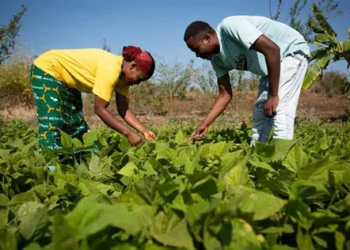OPINION
We all love food, not just eating it, but also talking about it, smelling it, and even its freshness. The soft chapati from the pan, samosas that are crispy enough to crackle and announce themselves, these are simple delights that make our meals memorable.
But here’s the funny thing, while we choose everything fresh, we often forget that food doesn’t lose its value just because it wasn’t cooked today. In fact, the “ready to eat” foods we rush to purchase from supermarkets are not any different from what remains after one has eaten enough at home or what remains at the chapati stand at the end of the day. The difference lies mainly in the packaging and handling, not the freshness. What we consider left overs in one setting becomes convenience food in another, yet we trust one and throw away the other, perfectly good food that gets wasted while someone else goes hungry.
This wasteful behavior is seen in homes, markets, supermarkets, and is quietly affecting both food safety and availability. In our homes, leftovers are stored poorly, at food stalls, the cooked food is left uncovered for so long and in supermarkets, there is sometimes poor stock rotation – ignoring First In First Out (FIFO) rule – causing older products to expire before they are sold. All this happening in communities where many people still struggle to afford a proper meal.
Beyond handling, another silent contributor to food waste is misunderstanding the food labels. Many consumers misinterpret the meaning of best before, use by, and sell by dates throwing away food that is still safe or eat food that is already expired. The Sell by date is mainly for retailers to manage their stock, it indicates the last day a retailer should display a product for sale, while Best before refers to the food’s quality not safety – the food is still safe to eat but may have lost some nutritional value or qualities of freshness. Use by date on the other hand is about safety, indicating the last day a product is considered safe to eat and food should not be consumed after this date. By knowing these simple differences, households and retailers can reduce the amount of food they waste every day.

Food security is not just about producing more food, it’s also about protecting what we already have. Through safe storage, proper handling and responsible consumption we ensure that food reaches more people and stays nutritious. Uganda’s growing urban population and changing lifestyles have made ready-to-eat foods more popular than ever, but this convenience also brings responsibility. Buying more than we need or storing food poorly leads to waste, and each careless act adds to a national challenge that affects everyone.
This year’s World Food Day theme, “Hand in Hand for Better Foods and a Better Future” reminds us Ugandans that everyone has a role to play. Consumers can make a difference by planning meals better and storing food properly. Vendors can help by following the First In First Out principle where the oldest stock items are sold first and newer items sold last while maintaining good hygiene in their stalls. Manufacturers have a duty to provide clear and accurate labels, while organizations and authorities should educate the public on sustainable food habits that protect both people and the planet.
Creating a better future is a shared effort, we need food that is safe, systems that are efficient, and communities that are informed. When we work hand in hand; producing, handling, selling, and eating responsibly, Uganda can reduce waste, improve food safety, and make every meal count. Together, we can secure a better, healthier future for all.
By Namuyanja Agatha Grace








































